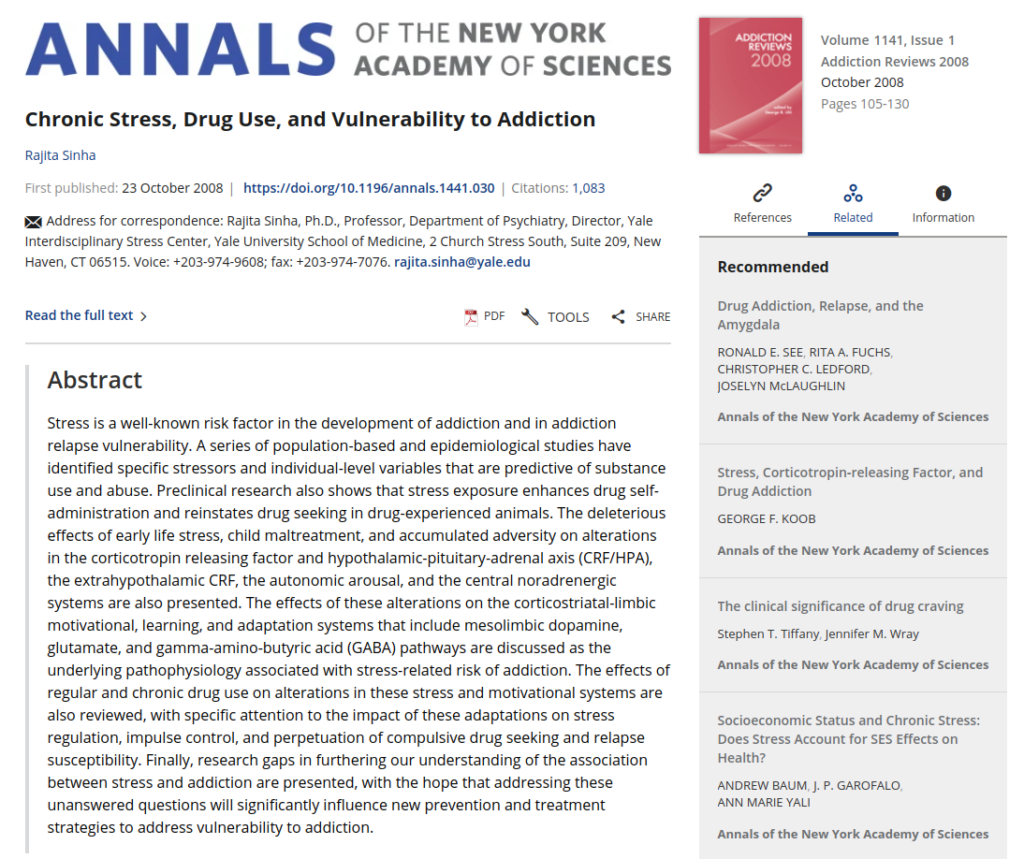Stress is a well-known risk factor in the development of addiction and in addiction relapse vulnerability. A series of population-based and epidemiological studies have identified specific stressors and individual-level variables that are predictive of substance use and abuse. Preclinical research also shows that stress exposure enhances drug self-administration and reinstates drug seeking in drug-experienced animals. The deleterious effects of early life stress, child maltreatment, and accumulated adversity on alterations in the corticotropin releasing factor and hypothalamic-pituitary-adrenal axis (CRF/HPA), the extrahypothalamic CRF, the autonomic arousal, and the central noradrenergic systems are also presented. The effects of these alterations on the corticostriatal-limbic motivational, learning, and adaptation systems that include mesolimbic dopamine, glutamate, and gamma-amino-butyric acid (GABA) pathways are discussed as the underlying pathophysiology associated with stress-related risk of addiction. The effects of regular and chronic drug use on alterations in these stress and motivational systems are also reviewed, with specific attention to the impact of these adaptations on stress regulation, impulse control, and perpetuation of compulsive drug seeking and relapse susceptibility. Finally, research gaps in furthering our understanding of the association between stress and addiction are presented, with the hope that addressing these unanswered questions will significantly influence new prevention and treatment strategies to address vulnerability to addiction.
Chronic Stress, Drug Use, and Vulnerability to Addiction
Abstract
Web and Email Links
Related Listings
Journal
Behavioral Medicine
To examine the extent to which advanced meditative practices might alter body metabolism and the electroencephalogram (EEG), we investigated three Tibetan Buddhist monks living in the Rumtek monastery in Sikkim, India. In a study carried out in February 1988, we found that during the practice of several different meditative practices, resting metabolism ([Vdot]O2) could be both raised (up to 61%) and lowered (down to 64%). The reduction from rest is the largest ever reported. On the […]
Journal
Frontiers in Psychiatry
Background: Obsessive-compulsive disorder (OCD) is often a life-long disorder with high psychosocial impairment. Serotonin reuptake inhibitors (SRIs) are the only FDA approved drugs, and approximately 50% of patients are non-responders when using a criterion of 25% to 35% improvement with the Yale-Brown Obsessive-Compulsive Scale (Y-BOCS). About 30% are non-responders to combined first-line therapies (SRIs and exposure and response prevention). Previous research (one open, one randomi […]
Journal
Am. J. Public Health
An experiment conducted at the corporate offices of a manufacturing firm investigated the effects of daily relaxation breaks on five self-reported measures of health, performance, and well-being. For 12 weeks, 126 volunteers filled out daily records and reported bi-weekly for additional measurements. After four weeks of baseline monitoring, they were divided randomly into three groups: Group A was taught a technique for producing the relaxation response; Group B was instructed to sit […]

